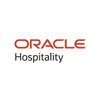Hotel 2025: Robotics - Human Complement or Substitute?
By Matt Nicholls


Welcome to the second in our series of Hotel 2025 blogs, where we will be sharing insights from the Oracle Hospitality report, Hotel 2025, including perspectives from more than 150 hotel operators and some 2,700 consumers on the emerging technological innovations redefining guest experiences.
Robotics is a field that brings together artificial intelligence, computer science, and mechanical and electrical engineering capabilities to design, construct, operate and deploy robots in a variety of industries. Robots are adaptable to perform any task required of it; most commonly they perform more dangerous or mundane tasks such as assembly line and packaging jobs. But robots have become so sophisticated and personable that they are starting to replace waiters, cleaners and even front-of-house hotel staff. Is it possible for robots to match, or even exceed, the human standard in hospitality?
In Japan, the Henn-na hotel team certainly thinks so. Customers are greeted by a dinosaur hostess who bows and says, "Welcome," as guests arrive. The company has plans to launch 100 more similar hotels within the next five years, all with the ambition for robots to handle 90% of tasks. This portends that robotic applications within hotels could be many, ranging from room service and cleaning to staff training and virtual concierges. But what do guests and hoteliers think?
From our survey of hoteliers and consumers, we gleaned some insights on the use of robots for greeting guests:
- 46% of interviewees believe that this will be either mass adopted or mainstream by 2025.
- Half said this would improve their experience.
- Only 22% say they would visit more often if hotels offered this service.
Ensuring that a staff member is always available for hotel guests is an important responsibility for all hotels. Hoteliers are tasked with the challenge of maximizing staff productivity and minimizing the time taken for each task, and for guest services the biggest time consumer is the delivery process. Luckily, robots are on hand to relieve some of this workload. They can pick up orders, navigate the hotel based on a pre-generated map, including calling and riding the elevator, and let guests know when they arrive via phone or an automated announcement. According to our survey, 56% of consumers and hotel operators think this will be mainstream or mass adopted by 2025 and almost 60% think this is very or somewhat appealing. However, the cost of purchasing robots remains the largest concern for operators.
One of the less obvious applications for robotic technology is staff training.
- 52% think that only early adopters, or no adopters at all would use robots for staff training by 2025
- 58% think it is somewhat or very appealing
- Just over half think it would improve employee efficiency
According to 'Maidbot', current housekeeping practices carry three major issues: "Housekeeping is the highest variable cost regardless of the hotel, room attendants have the highest injury rates in the service sector, and current commercial cleaning practices are inconsistent." Could a robotic addition to the housekeeping team be the answer? Dull, dirty, and physically demanding work inevitably takes its toll on hotel cleaning staff. Tackling these tasks with robotic solutions golds the promise of removing inconsistencies, increasing job satisfaction and reducing high staff costs. According to our survey, two thirds think using robots for housekeeping is somewhat or very appealing, and more than 60% think that it will be mainstream or mass adopted by 2025. Notably, 43% of our hoteliers believe such usage will improve employee efficiency, and 41% believe it will improve operational efficiency.
The idea of a robotic concierge is heating up in the hospitality industry; increased customer loyalty, reduced employee turnover and time and money savings are just a handful of the benefits:
- 58% think it will be mass or mainstream by 2025
- 64% believe it is somewhat or very appealing
- 42% think it would improve guest experience
It is worth noting that among surveyed consumers and hoteliers, robotic concierges received the highest, positive appealing response.
In comparison to virtual reality's impact on the hotel industry, concerns surrounding costs remain constant. However, robotic applications seem to provide more obvious and calculative benefits to hotel guests and hotel staff. For example, a robotic helping hand could reduce task completion time and human inconsistencies, allowing staff to focus their attention on other activities that generate greater guest satisfaction. The key to maximizing the potential of robotics lies in the combination of man and machine.
We hope you found this blog interesting and informative, and if you missed our first installment on virtual reality, check it out. Keep an eye out for the next Hotel 2025 blog, where we will explore the role artificial intelligence will play in hospitality. If you would like to read Oracle Hospitality's full Hotel 2025, you can download it here.
About Oracle Hospitality
Oracle Hospitality brings more than 45 years of experience in providing technology solutions to independent hoteliers, global and regional chains, gaming, and cruise lines. Our hardware, software, and services enable customers to act on rich data insights that deliver personalized guest experiences, maximize profitability, and encourage loyalty. Cloud-based, mobile-enabled, with open APIs, Oracle's OPERA Cloud property management and distribution, Simphony point-of-sale, reporting, and analytics, and Nor1 upsell solutions accelerate innovation, increase revenue, lower IT cost, and maximize operating efficiency. To learn more, please visit www.oracle.com/Hospitality.
About Oracle
Oracle offers integrated suites of applications plus secure, autonomous infrastructure in the Oracle Cloud. For more information about Oracle (NYSE: ORCL), please visit us at www.oracle.com.
Trademarks
Oracle, Java, MySQL and NetSuite are registered trademarks of Oracle Corporation. NetSuite was the first cloud company—ushering in the new era of cloud computing.
